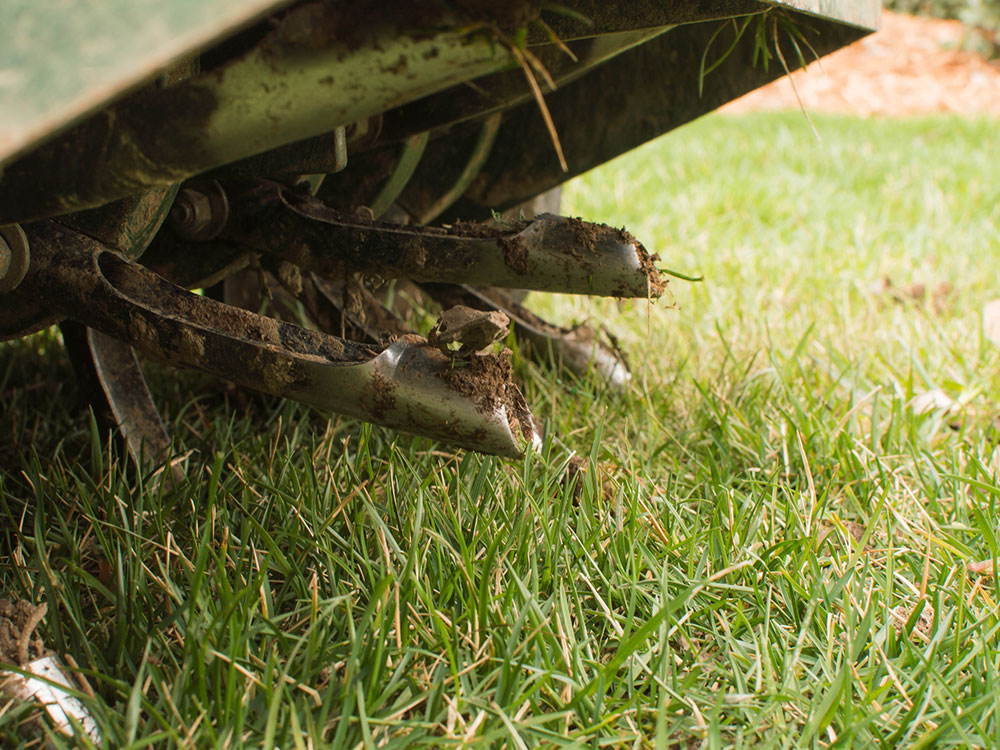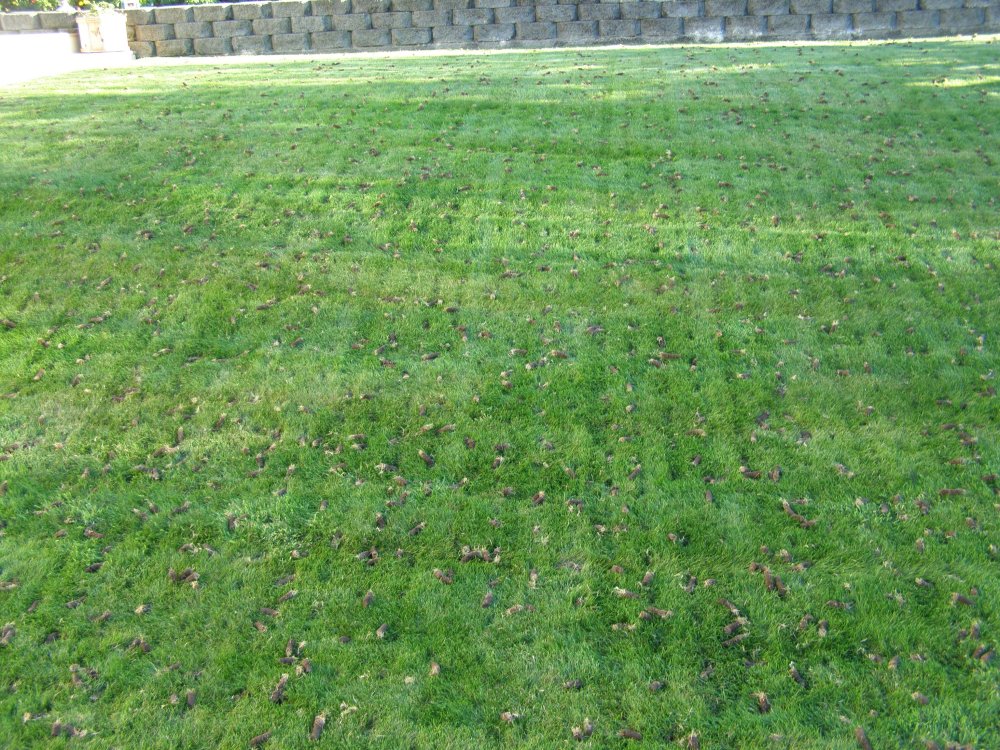Aeration Explained
Aeration is the naturally occurring process of air exchange between the soil and its surrounding atmosphere. Wynn’s Intensive Lawn Care mechanically extracts small 2-4 inch plugs or cores of thatch and soil from the lawn to help improve the natural soil aeration. The extracted cores are then left on the lawn to disperse nutrients back into the soil. Core aeration should be a part of your West Georgia lawn treatment to ensure a healthy and lush turf. Benefits of Core Aeration: Improve air exchange in the soil Enhance water uptake Improve nutrient uptake by the plant Reduce runoff and puddles Improve drainage Improve turf grass rooting Reduced soil compaction Enhance thatch breakdown Enhance heat and drought stress.

Spring & Summer Aerations
Core aeration is performed in the spring and summer for warm season grasses, to include Bermuda, Zoysia, Centipede and St. Augustine. Our mechanical core aeration improves lawn health and beauty by optimizing root development and reducing thatch. By aerating on a yearly basis, your lawn will deepen its root system and gain resistance to disease, insects, drought and heat stress. The improved drainage will allow air, chemical applications and water to get to the root system and improve the health of your turf. As an added benefit, aeration will reduce the amount of watering that you will need to do.

Fall Aerations
Fall aerations are provided in Autumn for cool season grasses, such as Fescue. The aeration, combined with starter fertilizer and premium Fescue blend seed, will provide all that is needed to grow a Fescue lawn that is thick and vigorous.



